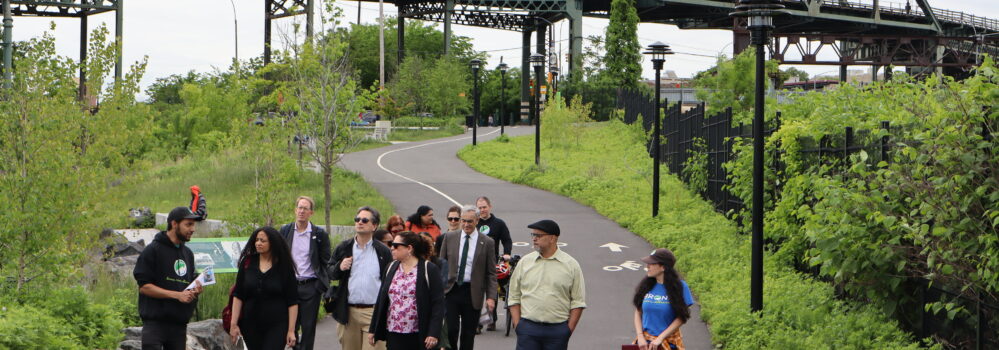|
2024 subawardee, Collective Oyster Recycling & Restoration’s project: Connecticut Shell Recovery and Shellfish Restoration Collaborative. CORR drops off a batch of recovered oyster and clam shells
Funding for LISCIF is provided by EPA through the Bipartisan Infrastructure Law and will help meet the goals of the Justice40 Initiative which calls for, “40% of the overall benefits of these Federal investments flow to disadvantaged communities that are marginalized, underserved, and overburdened by pollution”. The EPA defines environmental justice as, “the fair treatment and meaningful involvement of all people regardless of race, color, national origin, or income, with respect to the development, implementation, and enforcement of environmental laws, regulations, and policies. This goal will be achieved when everyone enjoys: (1) The same degree or protection from environmental and health hazards, and (2) Equal access to the decision-making process to have a healthy environment in which to live, learn, and work”.
For more information, please visit www.estuaries.org/liscif or contact Shahela Begum, LISCIF Program Director, at sbegum@estuaries.org.
For more information on the Long Island Sound Study, please visit: https://longislandsoundstudy.net/
###
|


